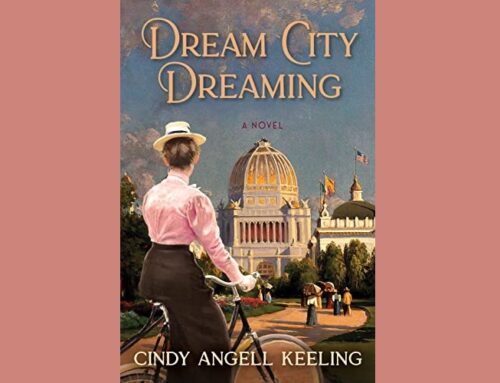“The White City was a young woman in a wedding gown. It was an undiscovered country.” — The Living Infinite by Chantel Acevedo

The Infanta Eulalia of Spain
She was the Queen of the Fair and the toast of the town, but the love affair between the Spanish Princess and Chicago was short-lived. After 47 days of travel that included visits to Puerto Rico, Cuba, Washington DC, and New York, the Infanta Eulalia of Spain pulled into Chicago on June 7, 1893, as one of the most anticipated and celebrated guests of the Columbia Exposition. The city extended a royal welcome like no other, with parades and banquets, concerts and balls, bouquets and banners, fireworks and festivities, and more parades.
Within days, though, tensions flared between Eulalia and World’s Fair organizers (and, most notably, Bertha Palmer). Perhaps the Princess simply grew tired of all the formal affairs, perhaps she was a bit too free-spirited for Chicago society, and perhaps there was a dose of “fake news” in the mix. Whatever the cause of the fallout, the feisty Infanta’s visit has become a legendary social scandal. As Eulalia departed Chicago a week later, the Tribune felt the need to comment on her “brief but not altogether satisfactory visit” by noting that “those upon whom the duty of entertaining Spanish royalty has devolved cannot be blamed if they feel they have wasted both time and effort.” More than five decades after the 1893 World’s Fair, one prominent citizen recorded that “Chicago has never forgotten, nor has it ceased to resent” the actions of Princess Eulalia during her visit.
Reading through some stories about her visit to the World’s Fair, I’ve developed a soft spot for Eulalia and wonder if she was not grossly misunderstood by Chicagoans and unfairly treated by the press back in 1893. Trampling through the mud of the Midway and site-seeing with Princess’ party just sounds more fun than attend a stuffy luncheon with Bertha Palmer.
 Who was Princess Eulalia? The Living Infinite, a new novel by Chantel Acevedo, explores the life and times of María Eulalia Francisca de Asís Margarita Roberta Isabel Francisca de Paula Cristina María de la Piedad, the youngest (b. 1864) and last surviving child (d. 1958) of Queen Isabella II of Spain, and sister of King Alfonso XII. In the afterword, Acevedo describes The Living Infinite as “a fictional dream” and points out some of the historical facts and her own inventions, such as the Infanta’s wet nurse and her son (Eulalia’s “milk brother”) who have prominent roles in the story.
Who was Princess Eulalia? The Living Infinite, a new novel by Chantel Acevedo, explores the life and times of María Eulalia Francisca de Asís Margarita Roberta Isabel Francisca de Paula Cristina María de la Piedad, the youngest (b. 1864) and last surviving child (d. 1958) of Queen Isabella II of Spain, and sister of King Alfonso XII. In the afterword, Acevedo describes The Living Infinite as “a fictional dream” and points out some of the historical facts and her own inventions, such as the Infanta’s wet nurse and her son (Eulalia’s “milk brother”) who have prominent roles in the story.
Columbian Exposition enthusiasts may enjoy this imagining of the private life of one of the fair’s most notable guests. Even though the novel spends only a brief time inside the fairgrounds, the story of Eulalia’s travels and life journey is captivating, and Acevedo’s writing style is engaging and wonderfully descriptive. Publishers Weekly writes that Acevedo “has found a turbulent historical moment, and the period comes vividly to life when the characters visit Cuba and then Chicago for the World’s Fair,” and Kirkus Review described The Living Infinite as a “fresh, fast-moving historical fiction from a master storyteller,” offer additional insight into the novel.
A national author’s tour brings Acevedo to City Lit Books in Chicago on Monday, October 23 at 6:30pm.





Leave A Comment